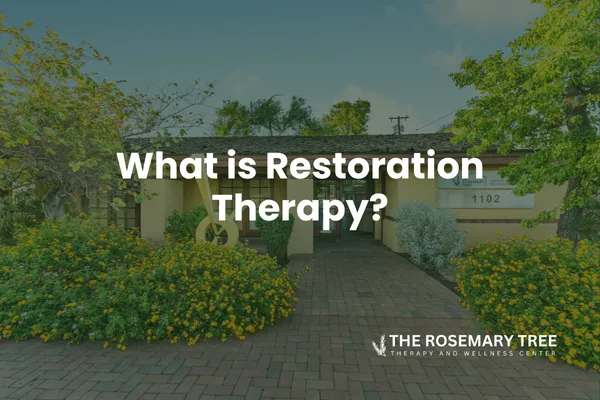
Restoration Therapy: Breaking Free From the Pain Cycle
When conflicts, emotional wounds, or old patterns repeat themselves again and again, it’s easy to feel stuck. Restoration Therapy (RT) offers a framework for understanding those cycles and choosing healthier ways to respond. By combining insights from attachment theory, emotional regulation, and practical tools, RT helps people move from the “pain cycle” to the “peace cycle.”
At The Rosemary Tree, Restoration Therapy is one of the powerful approaches we use to help individuals, couples, and families find healing and restore connection.
What Is Restoration Therapy?
Developed by Dr. Terry Hargrave, Restoration Therapy integrates attachment theory (how our early relationships shape us) with emotional regulation skills (learning to manage triggers and reactions).
It focuses on two key cycles:
The Pain Cycle: Trigger → emotional response (fear, shame, anger) → reactive behavior that damages relationships.
The Peace Cycle: Awareness of triggers → practicing truth and identity statements → regulated, values-based responses that build trust.
How RT Works in Practice
Identify Your Pain Cycle
With your therapist, you map out the emotions and behaviors that show up when you’re triggered.
Recognize Old Patterns
Understanding where those patterns come from — often childhood or past relationships — helps reduce shame and defensiveness.
Develop Your Peace Cycle
You create “truth statements” about your worth and values, then practice responding from that place of peace rather than pain.
Practice & Accountability
Sessions focus on practicing these new responses and holding yourself accountable for breaking destructive cycles.
Who Can Benefit From RT?
Restoration Therapy is especially helpful for:
Couples experiencing recurring conflict
Families stuck in negative communication patterns
Individuals managing shame, fear, or anger
Survivors of trauma looking for structured healing tools
Anyone wanting to improve self-regulation and relational trust
Why Choose RT?
Clear Framework: Easy-to-grasp cycles provide structure for change.
Relational Focus: Strengthens trust and connection in relationships.
Integrative: Blends emotional regulation with attachment theory.
Hopeful: Emphasizes growth and transformation rather than pathology.
Is Restoration Therapy Right for You?
If you find yourself repeating the same arguments, carrying shame or anger that hurts relationships, or struggling to break free of old patterns, RT may offer the structure and hope you need. At The Rosemary Tree, our therapists guide individuals, couples, and families through RT with compassion and clarity.
Learn More From Trusted Resources
Final Thoughts
The cycles we repeat don’t have to define us. Restoration Therapy helps you identify your pain cycle, replace it with a peace cycle, and choose new patterns that build trust, peace, and resilience. Healing is possible when we learn to regulate ourselves and connect more authentically with others.


